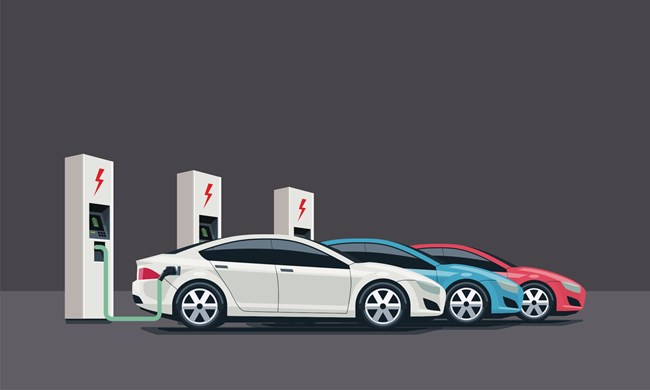We use cookies to ensure that we give you the best experience on our website. If you continue without changing your settings, we will assume that you are happy to receive all cookies on the Business Car website. However, if you would like to, you can change your cookies at any time

The start point for the best source of fleet information |
Saving money and the planet main motivations for electric company car adoption, Arval finds
Date: 17 August 2022 | Author: Sean Keywood

Cost advantages and a lower environmental impact are the top reasons given by UK businesses for electrifying their company car fleets, according to Arval.
The leasing company has published the latest findings from its Mobility Observatory Barometer survey of fleet decision makers.
When asked for reasons why they were going electric, the most popular choice was reducing fuel expenses, named by 66% of those surveyed - up from 54% last year - while the second most popular was tax incentives, named by 58% - up from 44%.
Having a lower environmental impact was the third most popular reason, at 54%, followed by total cost of ownership savings versus petrol or diesel vehicles at 41%, improving company image at 37%, and being able to drive in low-emission zones at 33%.
The findings place the UK in contrast to other European countries surveyed, which collectively named a lower environmental impact as the main reason for electrifying - though with the same 54% figure - with fuel savings named by 46% and tax incentives by only 35%.
Head of Arval's Mobility Observatory in the UK Shaun Sadlier said: "As net zero and other corporate environmental targets become increasingly common across organisations of all types and sizes, it is unsurprising to see reduced environmental impact as one of the leading reasons that fleets are electrifying. All kinds of non-ICE cars - hybrid, PHEV and pure EV - offer major gains in this area.
"However, it's a sign of the times that cost advantages now account for the top two reasons mentioned by the decision makers surveyed. It clearly shows that as operational experience of electrified vehicles grows, fleets are increasingly knowledgeable about the real-world potential and financial benefits of their adoption.
"In fact, more than four out of 10 fleets now show an awareness that electrified choices offer a total cost of ownership in line or lower than petrol or diesel alternatives, a key point that is only likely to become more pertinent as oil prices continue to increase.
"Another factor that has seen considerable growth is that employees are increasingly pushing for electrified vehicle adoption, up to 42% in this edition of the research compared to 29% last year. Staff enthusiasm for electrification is a key enabler of rapid change in many organisations."
Survey subjects were also asked which electrified forms of power they had already adopted for their fleet, and which they planned to adopt within the next three years.
Currently, the most popular are conventional hybrids, which 54% have already adopted and a further 14% plan to, followed by plug-in hybrids (44% and 19%), and battery EVs (36% and 21%).
Sadlier said: "These percentages represent nearly double the rate of adoption compared to the 19 other European countries that we survey, and it applies to all electrified cars and all rates of adoption.
"The UK is very much amongst the leaders on an international basis when it comes to car fleet electrification."











